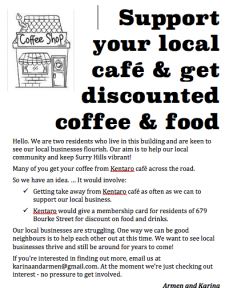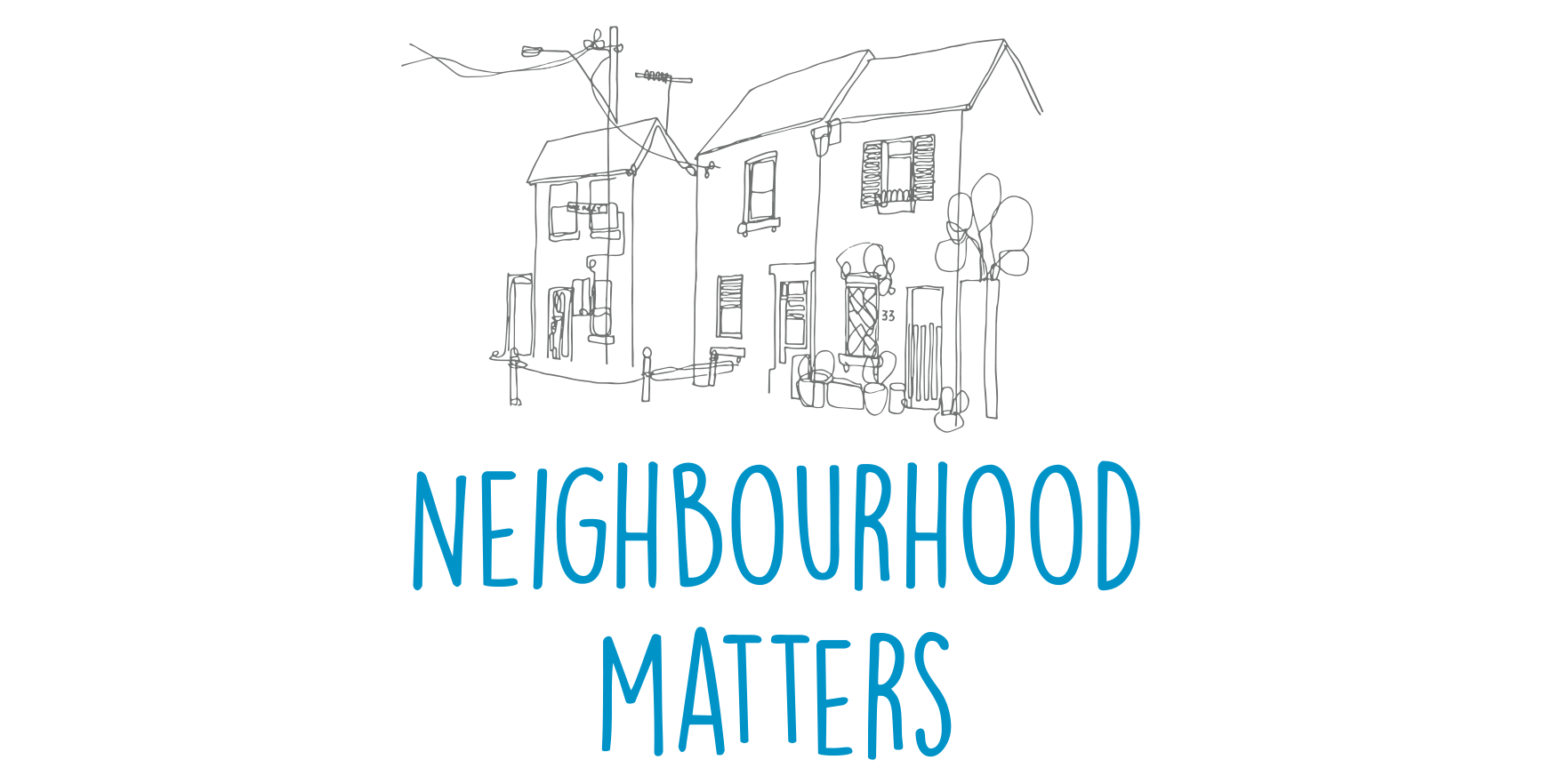In this time of social isolation, physical distancing and people out of work, one good way to help out a neighbour is to support local businesses.
Locally-owned cafés, restaurants, grocery stores and other retailers are a crucial part of the ecology of the neighbourhood. Not only do they provide us with the things we need, but for some people they are the only point of social contact. Neighbours mingle in shops as they decide what to buy. In cafés and restaurants relationships are nurtured, business partnerships are formed and families and friends relax after a hard day’s work. And businesses shape the character of a community with their shopfronts and displays and colours and odours.
It’s made us sad to see so many local businesses now struggling, or even closing down, in our community.
There’s a café close to where we live, where we would sometimes meet friends for a cup of tea. Or have meetings. Or just sit with a tea for quiet reflection. Or have an omelette. Like many other cafés in our area, they are now offering takeaway.
So we had an idea: adopt-a-business.
We live in a large block of apartments. What if we were all intentional about buying just one takeaway coffee or lunch each week or even fortnight? This would help keep the café in business.
We approached the café manager and he was keen. We then dropped a simple flyer in the letterboxes of all the residents in our building to gauge interest in the idea before going ahead.

We heard back from one neighbour, who said she’s already trying to support the café by buying muffins. And when we went back to see the manager, he told us how a few of his customers from our building said they had seen the flyer. So we decided to go ahead.
The next step is that the manager will print copies of their menu and membership cards and place them in the letterboxes. They will be offering a 10% discount on drinks and 15% on food for residents of our building.
We learnt a few things from this:
- There was an opportunity at our doorstep.
- We started small.
- We kept it simple.
- This was a great way to build relationship with the manager and owner.
There are others doing this, too – individuals, community organisations and churches. The ‘Love Your Neighbours’ initiative of St John’s Anglican Church at Diamond Creek in Victoria encourages members of the church to ‘adopt’ a local business for a year. And individuals and families of a United Church in Seattle, USA, are being encouraged to ‘Adopt a Restaurant’ in their neighbourhood.
Could this work in your neighbourhood? How would you implement something like ‘adopt-a-business’ in your community?
Let us know how you go!
Update: The café manager has done a letter box drop in our building. Here’s the flyer.

He messaged me today to say he’s already had a positive response, which is great news!
